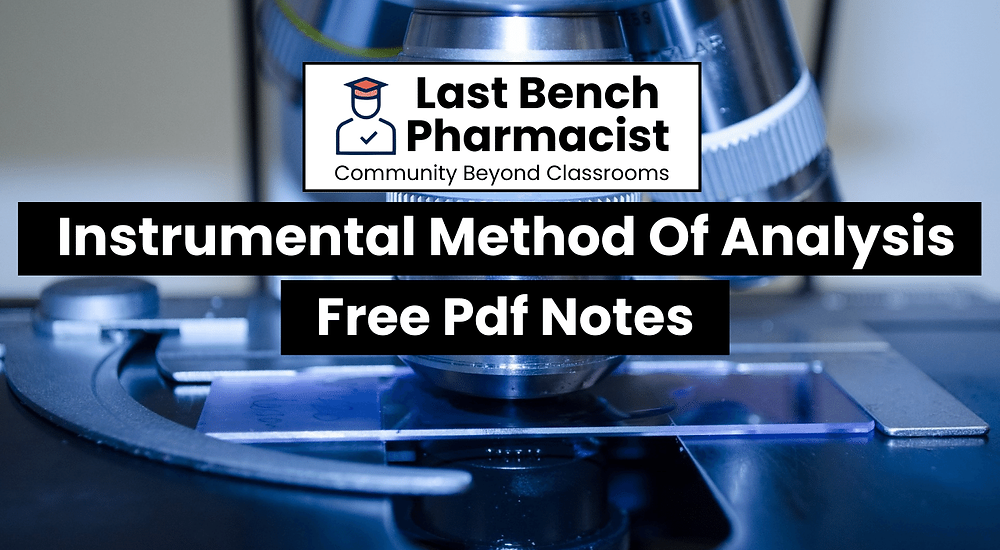



B-Pharmers, are you ready to unleash your inner detective and unlock the secrets of molecules through instruments? Dive into the exciting world of B Pharm Instrumental Method Of Analysis PDF Notes, where powerful tools become your allies in dissecting the composition of everything from medicines to food! Imagine using light, electricity, or even sound waves to identify and measure different components with incredible precision. This unit equips you with the fundamentals of various techniques, like spectroscopy, chromatography, and electrochemistry, each offering a unique window into the molecular world. Get ready to decipher spectra, separate mixtures like a pro, and understand how these methods play a crucial role in quality control, research, and various aspects of the pharmaceutical field. It’s time to trade textbooks for beakers and lasers, embarking on a thrilling journey of discovery through the power of instrumental analysis!
This subject deals with the application of instrumental methods in qualitative and quantitative analysis of drugs. This subject is designed to impart a fundamental knowledge on the principles and instrumentation of spectroscopic and chromatographic technique. This also emphasizes on theoretical and practical knowledge on modern analytical instruments that are used for drug testing.
Upon completion of the subject student shall be able to
Understand the interaction of matter with electromagnetic radiations and its applications in drug analysis
Understand the chromatographic separation and analysis of drugs.
Perform quantitative & qualitative analysis of drugs using various analytical instruments.
UV Visible spectroscopy
Electronic transitions, chromophores, auxochromes, spectral shifts, solvent effect on absorption spectra, Beer and Lambert’s law, Derivation and deviations.
Instrumentation – Sources of radiation, wavelength selectors, sample cells, detectors- Photo tube, Photomultiplier tube, Photo voltaic cell, Silicon Photodiode.
Applications – Spectrophotometric titrations, Single component and multi component analysis
Fluorimetry
Theory, Concepts of singlet, doublet and triplet electronic states, internal and external conversions, factors affecting fluorescence, quenching, instrumentation and applications
IR spectroscopy
Introduction, fundamental modes of vibrations in poly atomic molecules, sample handling, factors affecting vibrations
Instrumentation – Sources of radiation, wavelength selectors, detectors – Golay cell, Bolometer, Thermocouple, Thermister, Pyroelectric detector and applications
Flame Photometry-Principle, interferences, instrumentation and applications
Atomic absorption spectroscopy- Principle, interferences, instrumentation and applications
Nepheloturbidometry- Principle, instrumentation and applications
Introduction to chromatography
Adsorption and partition column chromatography-Methodology, advantages, disadvantages and applications.
Thin layer chromatography- Introduction, Principle, Methodology, Rf values, advantages, disadvantages and applications.
Paper chromatography-Introduction, methodology, development techniques, advantages, disadvantages and applications
Electrophoresis– Introduction, factors affecting electrophoretic mobility, Techniques of paper, gel, capillary electrophoresis, applications
Gas chromatography – Introduction, theory, instrumentation, derivatization, temperature programming, advantages, disadvantages and applications
High performance liquid chromatography (HPLC)-Introduction, theory, instrumentation, advantages and applications.
Ion exchange chromatography- Introduction, classification, ion exchange resins, properties, mechanism of ion exchange process, factors affecting ion exchange, methodology and applications
Gel chromatography- Introduction, theory, instrumentation and applications Affinity chromatography- Introduction, theory, instrumentation and applications